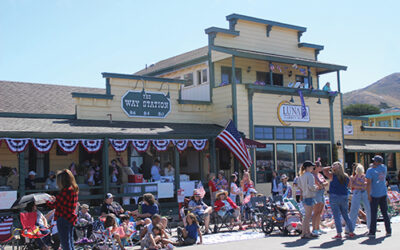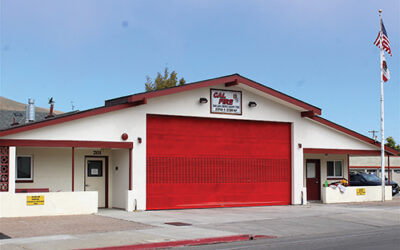The Morro Bay City Council denied the appeal of a permit to convert a north Morro Bay motel into a residential drug and alcohol rehab center, finding that concerns raised by citizens weren’t enough to deny housing to a “protected class” of people.
The project would change the use of the Rodeway Inn, a 27-room, older motel on North Main Street. The project was issued an administrative “over-the-counter,” minor use permit (MUP) in February by the City Community Development director, in what was for the City a pretty routine matter.
But neighbors of the Inn, who were notified by the City of the project, as well a notice posted on the property, alerted residents, who have responded negatively, questioning the wisdom and appropriateness of the change.
The admin permit was appealed to the Planning Commission, which last month also unanimously denied the appeal.
The project was then appealed to the City Council with one appellant, Ashley Smith, making numerous allegations involving the people who are proposing the project and those who will ultimately be running it, too. She pointed out a somewhat questionable history they have with a facility down in Pasadena several years ago.
Several other residents raised concerns about the location being too close to local schools, and urging the Council to deny the project outright.
The staff report, addressing the claims in turn, essentially said such concerns are not properly addressed as part of an MOU process, which is restricted to land use and cannot make judgments on an applicant’s fitness or past legal entanglements.
The City had two attorneys on the Zoom meeting — Chris Neumeyer and Elena Gerli — to explain what the City’s authority was in reviewing the proposal explaining that people seeking treatment for drug and alcohol addiction are considered “disabled” and are a protected class of people with regards to housing laws. Essentially, such residential facilities are allowed in all residential zones and denying one could end up in a lawsuit the City would likely lose.
Community Development Director, Scot Graham told Estero Bay News after the meeting, “Elena Gerli served as special counsel on the appeal, as she has quite a bit of expertise in the field of supportive housing. Both Elena and City Attorney, [Chris] Neumeyer, did a nice job of laying out the legal limitations we have in reviewing and approving/denying these types of uses.”
That didn’t set well with opponents, in particular Smith, who pointed out several instances where the applicants had “lied” about their past affiliations with the controversial facility in Southern California.
She also pointed out that the City does have the means to deny the project despite what State and Federal law says on the matter.
In her staff report, City Planner Nancy Hubbard wrote, “The facility will constitute supportive housing, as defined in the City’s code and in state law, and the applicant expects to provide housing and services for up to 26 individuals in recovery from alcohol and substance abuse, who are considered disabled under state and federal law. State law requires that supportive housing be permitted by right in zones where multi-family and mixed uses are allowed.”
None of the concerns amounted to actual evidence in the eyes of the City and the Council, who acknowledged the concerns but didn’t heed them.
Mayor John Headding in his motion to deny the appeal added two more conditions to the project. The two amendments by Headding were:
- Applicant will provide copies of any reporting required by the California Department of Health Care Services, provided that any information identifying residents of the facility, any private medical information, or information protected from disclosure by law shall be redacted; and,
- Applicant will provide City with notice of any findings of violation or disciplinary action taken by CDHS against the facility within 30 days of receiving a determination by the department.
The applicant’s agent, Brian Der Vartanian, agreed on the record to the two changes from Headding, which were added to the MUP’s numerous other, standard conditions inherent with that permit.
Graham, asked what further appeals might be made, said, “Only recourse for appellant at this point would be the courts.”
The motel’s general manager, Rich Donald, had told EBN previously that it would be some time, perhaps a couple of years, before the change over could be made as there are many steps involved before they can get the facility licensed by the State. In the meantime, plans are to continue to run the motel as is.


